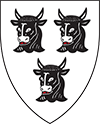Fellows
Gurbakhshash Singh |
|
 |
Witold SkibaPhysics |
 |
Ed SmithSculptor |
 |
Wake SmithWake Smith is a Lecturer in the Yale School of Environment, where he teaches a graduate level course on climate engineering. He is also a Research Fellow at the Harvard Kennedy School. His book Pandora’s Toolbox: The Hopes and Hazards of Climate Intervention was published by Cambridge University Press in March 2022. He has published scholarly papers on the aeronautics, costs, and governance of solar geoengineering and has helped develop preliminary designs for high altitude research aircraft. He was previously a senior executive at Boeing among other commercial aviation firms and earned a BA from Yale and an MBA from Harvard. |
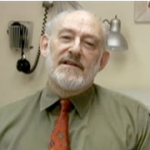 |
Sydney SpieselSchool of Medicine/PediatricsSydney Spiesel is a pediatrician specializing in adolescent medicine and is on the clinical faculty of the Yale University School of Medicine. He is a regular commentator for Slate magazine and National Public Radio. He is also the inventor of a shampoo that makes lice eggs fluoresce under ultraviolet light, so making them more visible. Email Sydney Spiesel |
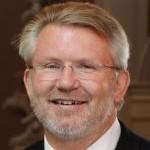 |
Gregory SterlingDivinity SchoolGregory E. Sterling is the Reverend Henry L. Slack Dean of Yale Divinity School and Lillian Claus Professor of New Testament. Dean Sterling, a New Testament scholar with a specialty in Hellenistic Judaism, has concentrated his research on the writings of Philo of Alexandria, Josephus, and Luke-Acts, with a focus on the ways in which Second Temple Jews and early Christians interacted with one another and with the Greco-Roman world. He assumed the deanship in 2012 after more than two decades at the University of Notre Dame, where he served in several capacities at the College of Arts and Letters before becoming the first dean of the independent Graduate School. Dean Sterling is the author of several books—Coptic Paradigms: A Summary of Sahidic Coptic Morphology; Armenian Paradigms; and Historiography and Self-Definition: Josephos, Luke-Acts, and Apologetic Historiography—and more than fifty-five scholarly articles and essays. He is finishing a book titled “Defining the Present through the Past” (Eerdmans), which examines how indigenous authors defined their people’s identities through the past and is an extension of his earlier Historiography and Self-Definition. Dean Sterling is general editor for the Philo of Alexandria Commentary Series (E.J. Brill) and coeditor of the Studia Philonica Annual. He served as editor of the Christianity and Judaism in Antiquity Series (University of Notre Dame Press) for twenty years. He is a member of the editorial board of Beihefte zur Zeitschrift für die neutestamentliche Wissenschaft. A Churches of Christ minister, Dean Sterling has held numerous leadership positions in the Society of Biblical Literature, the Studiorum Novi Societas, and the Catholic Biblical Association. |
 |
Scott StrobelMolecular Biology and BiophysicsScott Strobel joined the Yale faculty in 1995 in the Department of Molecular Biophysics & Biochemistry (MB&B) where he served as department chair from 2006-09 and currently holds the Henry Ford II Professorship. Since 2011 he has served as vice president for West Campus planning & program development, and in July 2014 he took on additional responsibility as the inaugural deputy provost for teaching & learning. In this capacity, he will oversee the development of a comprehensive Yale Center for Teaching and Learning that will promote teaching excellence, foster improved student learning, and provide a clear pathway for teaching resources and support to Yale faculty, graduate students, and postdocs. In 2006 and again in 2010, he was named a Howard Hughes Medical Institute (HHMI) Professor to promote efforts in undergraduate science education. With this award he instituted a program to explore microbial and chemical diversity in the world’s rainforests as a means to inspire undergraduate students in the sciences. He was awarded the Dylan Hixon Prize for Teaching Excellence in the Natural Sciences in 2004 and the Graduate Mentoring Award in the Sciences in 2007. He received his B.A. from Brigham Young University and his Ph.D. from the California Institute of Technology. His current research explores the chemical basis of RNA function and catalysis and hydrocarbon production by endophytic fungi. |
 |
Timothy StumphWorld Fellows ProgramTim manages the Maurice R. Greenberg World Fellows Program and coordinates other programs within the International Leadership Center. He also oversees the admission and selection processes and is responsible for recruiting dynamic and creative practitioners from around the globe. Prior to joining the World Fellows team, Tim was Co-Director of the Office of Fellowship Programs at Yale College and Assistant Director of Admissions at the Yale Graduate School of Arts and Sciences. He has worked as an ESL instructor in Europe and Asia and has lived and studied in the United Kingdom, Colombia, Guatemala and the Czech Republic. Tim has an MA in education from the University of Connecticut and a BA in Spanish from Earlham College. Email Timothy Stumph |
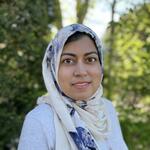 |
Kiran TahirKiran Tahir is a nonprofit development professional with over 15 years of experience in the industry. She is currently serving as Director of Prospect Management & Research at Yale Law School. She serves as a board member of Dwight Hall at Yale, and co-chairs the Scholarship Committee for the New England Development Research Association. Email Kiran Tahir |
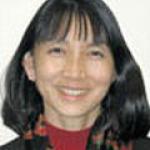 |
Lynn TanoueInternal MedicineDr. Tanoue is a graduate of Harvard University and Yale Medical School. She is a pulmonary/critical care specialist, with a focus in the field of thoracic oncology. She co-directs the Yale Cancer Center Thoracic Oncology Program and is Director of Winchester Chest Clinic at Yale-New Haven Hospital. Dr. Tanoue is a founding member of the Yale Medical Symphony Orchestra. Email Lynn Tanoue |
 |
Shamshir TarlanovStudent Accessibility ServicesShami joined Student Accessibility Services (SAS) in 2021, where he works with graduate and professional students, including those in health science education programs, to facilitate accommodations for students with disabilities. Prior to joining SAS, Shami served as an Access Advisor for the Disability Resource Center at Missouri State University, specializing in support for Deaf and hard-of-hearing students. He also held the role of Assistant Coordinator of Disability Resources at Washington University in St. Louis. Shami earned his Master of Social Work (MSW) from the Brown School of Social Work at Washington University in St. Louis (Go Bears!) and a Bachelor of Arts from Baku Eurasia University. He grew up in Baku, the capital city of Azerbaijan, and proudly identifies as a first-generation student. Email Shamshir Tarlanov |
David ThompsonDavid Thompson Architects |
|
Gail Tomisch |
|
 |
Ebru ToprakMathematicsEbru Toprak is a Gibbs Assistant Professor at the Mathematics Department. She joined Yale University in 2021. Before her appointment at Yale, Ebru was a Hill Assistant Professor at Rutgers University. Throughout her academic career, Ebru has been specializing in Analysis and Partial Differential Equations. Ebru is originally from the Republic of Turkey and she came to the United States in 2012 to pursue a Ph. D degree in Mathematics. She completed her Ph. D at the University of Illinois at Urbana-Champaign. For her Ph. D dissertation, she received the 2019 Association for Women in Mathematics (AWM) Dissertation Prize. Email Ebru Toprak |
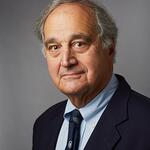 |
Robert TouloukianPediatric MedicineRobert James Touloukian MD, FACS, is board certified in Pediatric Surgery. He received his medical degree from Columbia University. Dr. Touloukian was Chief Resident at Bellvue Hospital, New York, NY in the Surgical Division followed by Chief Resident at Babies Hospital, Columbia Presbyterian Medical Center, New York, NY in Pediatric Surgery. Dr. Touloukian’s research interests include pediatric trauma, tumors and newborn surgery and his clinical interests include neonatal surgery, trauma, tumors, head and neck surgery, thoracic surgery, and pediatric oncology. |
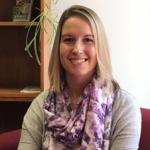 |
Kathy TrputecYale Summer SessionKathy Trputec is an Assistant Director in Yale Summer Session. She primarily works with incoming international students and Yale students interested in the Global Summer Program. When she is not working, she enjoys doing yoga, traveling, gardening and playing outside with her twin sons.Email Kathy Trputec |
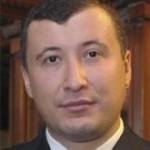 |
Aleh TsyvinskiEconomicsProfessor Aleh Tsyvinski holds the Arthur M. Okun Chair in Economics and Global Affairs. He is a macroeconomist with particular interest in government policy and the role of markets in society. His most recent research is on the theory of taxation. |
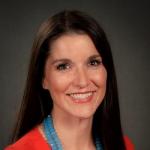 |
Kassie TuckerTsai Center for Innovative Thinking at YaleKassie is the Managing Director of the Tsai Center for Innovative Thinking at Yale. At Tsai CITY, she focuses on engaging students from across Yale’s campus to explore innovative ways to solve real world problems. Email Kassie Tucker |
 |
Tom TylerLaw SchoolTom R. Tyler is the Macklin Fleming Professor of Law and Professor of Psychology at Yale Law School. He is also a professor (by courtesy) at the Yale School of Management. He joined the Yale Law faculty in January 2012 as a professor of law and psychology. He was previously a University Professor at New York University, where he taught in both the psychology department and the law school. Prior to joining NYU in 1997, he taught at the University of California, Berkeley, and at Northwestern University. Professor Tyler’s research explores the role of justice in shaping people’s relationships with groups, organizations, communities, and societies. In particular, he examines the role of judgments about the justice or injustice of group procedures in shaping legitimacy, compliance, and cooperation. He is the author of several books, includingWhy People Cooperate (2011); Legitimacy and Criminal Justice (2007); Why People Obey the Law (2006); Trust in the Law (2002); and Cooperation in Groups (2000). He was awarded the Harry Kalven prize for “paradigm shifting scholarship in the study of law and society” by the Law and Society Association in 2000, and in 2012, was honored by the International Society for Justice Research with its Lifetime Achievement Award for innovative research on social justice. He holds a B.A. in psychology from Columbia and an M.A. and Ph.D. in social psychology from the University of California at Los Angeles. |
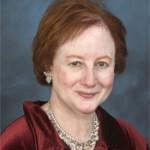 |
Noël ValisSpanish & PortugueseNoël Valis has written on the literature, culture, and history of modern Spain; the Spanish Civil War; religion and literature; Federico García Lorca; and the study of celebrity and cultural icons. Her work in women’s and gender studies was recognized with the Victoria Urbano Academic Achievement Prize. A Corresponding Member of the Royal Spanish Academy and past member of the NEH’s National Council on the Humanities, she is also the recipient of Fulbright, Guggenheim, and NEH/National Endowment for the Humanities Fellowships. She served as President of the Asociación Internacional de Galdosistas/International Association of Galdós Scholars in 2021-23. Email Noël Valis |

